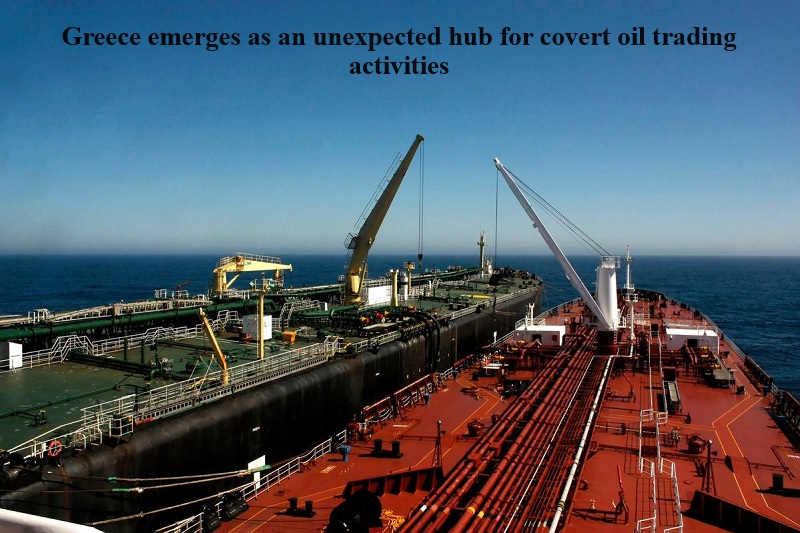
In an astonishing revelation, Greece has emerged as an unexpected center for covert oil trading activities, circumventing Western sanctions imposed on Russia. Recent reports from Bloomberg expose the involvement of two aging oil tankers, Turba and Simba, in suspicious ship-to-ship fuel transfers off the Greek coast. These vessels, flagged as “very high risk,” are part of an extensive shadow fleet responsible for handling nearly 45% of Russia’s oil shipments this year.
Despite Western sanctions, Greece, the world’s largest single owner of oil tankers, remains a crucial outlier, playing a significant role in facilitating Russia’s oil trade. Greek-owned vessels have been involved in handling 20% of all of Russia’s oil shipments in 2023. This unexpected consequence of reshaping financial structures in oil and maritime trade raises concerns about environmental risks and funds potentially flowing back into Kremlin coffers to finance the conflict in Ukraine.
The Western sanctions, aimed at curbing funding for Russia’s military activities, included a $60 per barrel price cap for seaborne Russian oil. However, instead of achieving the intended goals, the sanctions have inadvertently created a lucrative business for elusive traders and shipping companies.
Eddie Fishman, a senior research scholar at Columbia University’s Centre on Global Energy Policy, warns that without concerted action, these substandard alternatives to Western services could become a structural feature of the global oil trade, posing long-term challenges.
Despite tentative Western efforts to counter Russia’s workarounds, Greece claims powerlessness to prevent clandestine shipping off its coast, citing that these activities occur in international waters. The International Maritime Organization (IMO) expresses “grave concern” over the shadow fleet’s illegal activities and calls for a global crackdown to prevent environmental disasters.
The shadow fleet, responsible for moving about 45% of Russia’s oil this year, is becoming increasingly entrenched, raising fears that regulators’ inability to act against these covert operations could make them a permanent feature of the global oil trade. The unintended consequences of the sanctions have shifted the balance from dominant forces to smaller, difficult-to-trace organizations with unclear affiliations, raising transparency and environmental concerns.
In response to growing concerns, the US Treasury has sanctioned oil tankers and expressed a desire to increase costs for Russia. However, the unanswered question remains: Do the US and its allies truly want to curb Russian oil flows, considering the potential impact on global fuel prices in an election year? Policymakers are faced with a complex challenge, including the possibility of Moscow employing various workarounds, from the shadow fleet to manipulating Western service providers.

Post Your Comments